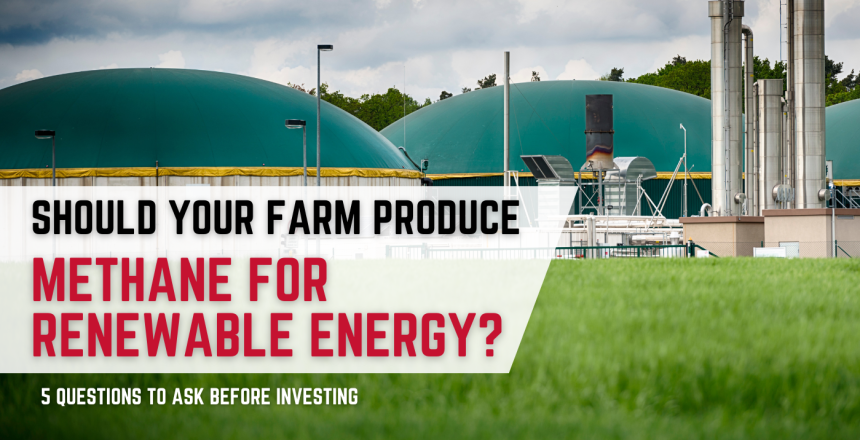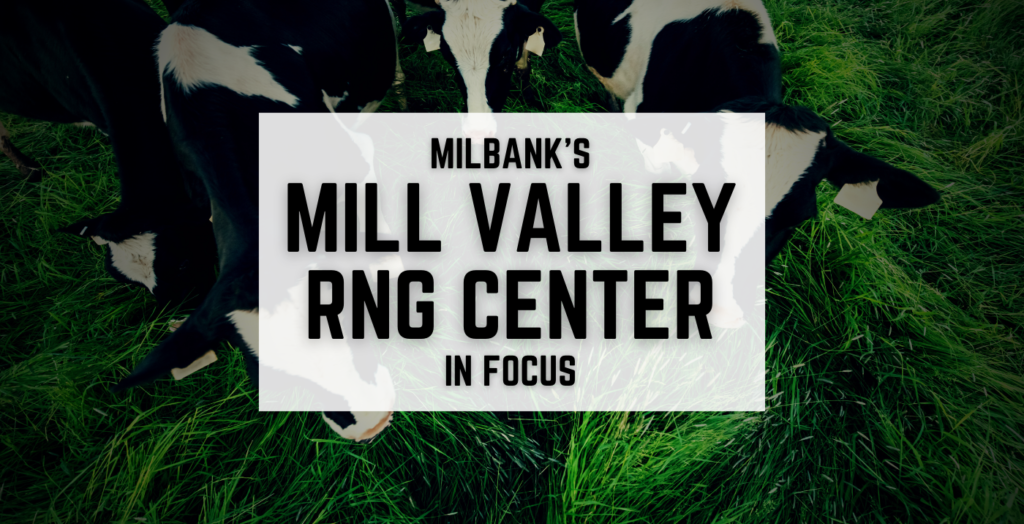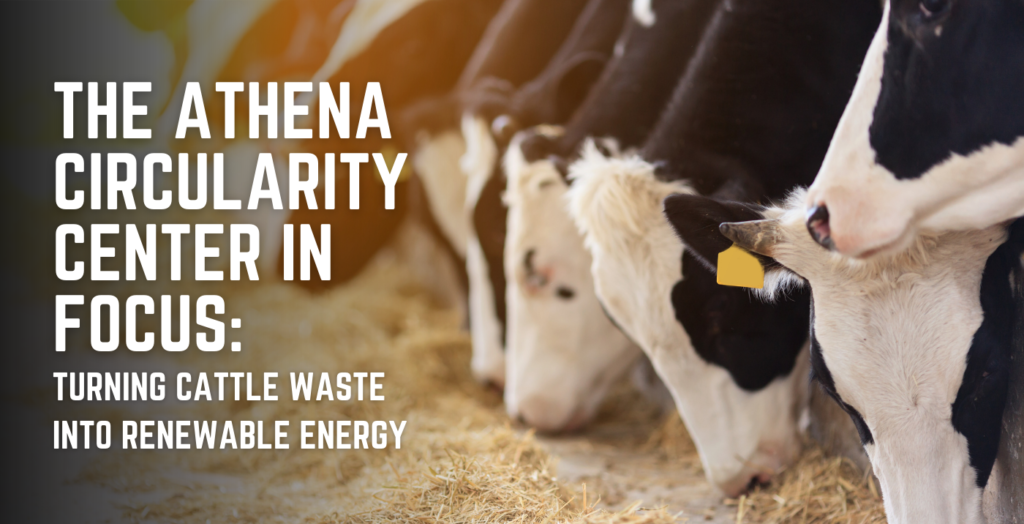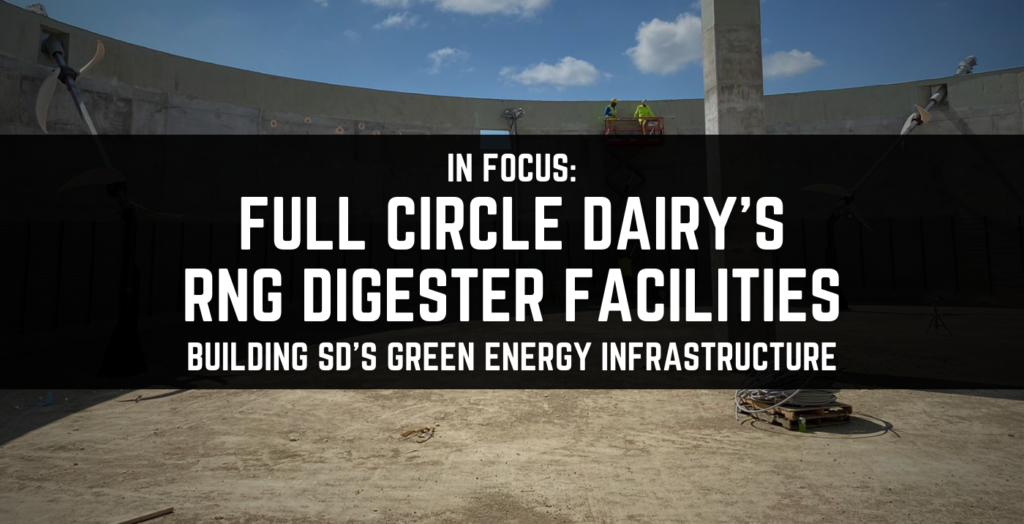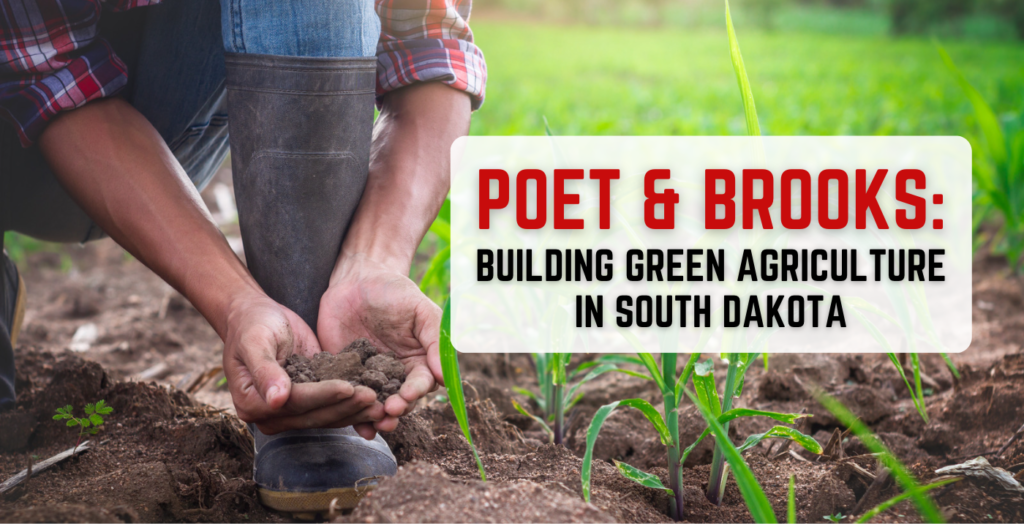As the green economy grows, the demand for renewable energy sources grows with it. One of those sources, renewable natural gas (RNG), shows promise in several applications. And farmers have an opportunity to meet that demand by producing methane for renewable energy pipelines.
Renewable natural gas can add a new source of revenue to your farming operations, but it might not necessarily be the right choice for your business plan. Let’s tackle 5 important questions you should ask before you invest in systems to produce methane for renewable energy.
5 Questions to Ask Before Producing Methane for Renewable Energy
Now that you’re considering methane production on your farm, you’ll need to know whether or not your farm is ready for an RNG digester system. Several factors will determine the success of this new endeavor, from the scale of your farm to the type of waste management system you have.
Does Your Farm Have the Right Livestock?
Hogs, cattle, and poultry all provide the waste needed to produce methane for renewable energy pipelines. Cattle manure tends to have more carbon, which can be harder to process. Adding feedstock that is higher in nitrogen (poultry and hog waste) can help balance the carbon content and increase the methane output.
But even with the right livestock, codigestion can aid in methane production by including other nutrient-rich waste, like restaurant food wastes, food processing wastes, energy crops, and food grease and oils.
Is Your Farm Big Enough?
The typical manure digester requires a large amount of slurry to operate efficiently. This translates to around 500 head of cattle or 2,000 hogs for liquid slurry manure management systems.
For some farms, these types of numbers may not be feasible. But many anaerobic digester projects have overcome this challenge by bringing several different farms together to supply a single digester system. Not only does this allow small farms to participate in methane production for renewable energy, but it also allows these farms to tap into the revenue stream without the need for a large farming operation.
Is Your Manure Management Compatible?
The type of manure management system you have makes a difference in your ability to implement a methane production system in your farm. The most compatible manure management systems store slurry (5-10% solids) or semi-solid (10-20% solids) manure, with about 12% solids being optimal. Digester systems also require that the manure be gathered at least weekly.
Is It Worth The Investment?
Even if your farm meets the basic requirements to install a digester system, it’s still important to weigh the potential financial benefits of producing methane for renewable energy against the initial costs. Digester systems can cost several million dollars to build, so independently financing your own system may be prohibitive. But there are alternatives.
Both grant opportunities and investors can offer farmers the opportunity to build a digester system on their properties with less initial cost. Many investors even lease the land and pay for the feedstock in exchange for the methane production.
Are You Serious About Producing Methane for Renewable Energy?
The financial benefits of producing methane for renewable energy are attractive, but farmers will have plenty of work ahead to reap the rewards. A full-scale anaerobic digestion system requires consistent maintenance and operation. This likely means hiring a full-time operations manager with the training necessary to keep the system running smoothly.
Without a commitment to that maintenance, the investment could be wasted after only a few seasons, if not sooner. RNG digestion is a long-term commitment, not a fast cash boost.
Ready to Start Producing Methane for Renewable Energy?
Brooks Construction is your go-to concrete construction company for RNG digester systems in South Dakota. We’ve been building large-scale anaerobic digestion systems with our partners throughout the Sioux Empire, helping farmers transform their waste into revenue.
Our Projects:
Reach out today to find out how you can become part of the circular economy and boost your annual profits with methane for renewable energy!

